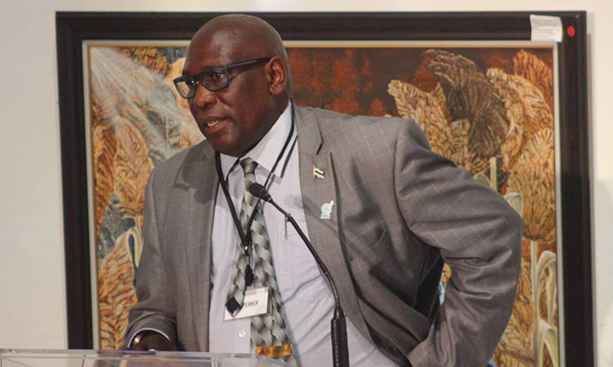Reports that Angola and Namibia are committed to also list their side of the Okavango basin as a World Heritage Site under the United Nations Educational, Scientific and Cultural Organization (UNESCO) comes as a relief to Botswana that the country’s prestigious Okavango Delta will be secure from potential threats emerging from upstream that could lead to its ecological collapse.
The new developments comes as an assurance to Botswana that Angola and Namibia may genuinely indeed have no intentions whatsoever of harming Botswana’s wetland resource.
The fourth longest river system in Southern Africa originates from the Angolan highlands passing through Namibia on its way into Botswana’s Okavango Delta. This then means that the existence of Botswana’s Okavango Delta is mainly depended on the water fed by the Cubango and Cuito Rivers from Angola and the Kavango River from Namibia.
Disturbing reports emerged in the past few years that the two countries were allegedly constructing massive water channels from their sides that diverts water from flowing abundantly down into the Okavango Delta. Namibia was reportedly considering extracting water from Kavango River to use for power generation, agriculture and to supply their capital Windhoek. There was also reported increased agricultural development places in Angola which put more pressure on the Cubango and Cuito Rivers.
The reports were also confirmed by the former Minister of Environment, Natural Resources Conservation and Tourism, Tshekedi Khama who revealed that Angola has reportedly constructed 150 kilometers long and 30 meters wide channels along their river upstream. Addressing a kgotla meeting in Maun in 2018 Khama added that there were also reports that Chinese nationals have invaded Angola in large numbers to plough rice along the Okavango basin.
This raised fears that the existence of the Okavango Delta will then be at a risk something which will consequently impact negatively on Botswana’s tourism sector. The wetland resource is the major contributor to the country’s tourism sector which happen to also be the second largest contributor to Botswana’s GDP after the mining sector.
Authorities in Angola and Namibia have however refuted the reports stressing that the water usage in their countries is meaningless noting that there is no how it can threaten the existence of the Okavango Delta.
Addressing the media in Maun, Director at the Department of National Museum and Monuments, Gaogakwe Phorano noted that such allegations have not been confirmed. He said, “Yes we are aware of reports that there are on-going developments upstream the delta, but as for us the reports have not yet been confirmed to be true.”
Phorano said the fact that Angola and Namibia are also committed to the co-listing of the entire Okavango basin as a World Heritage Site is an assurance that the two countries are also committed to protection of the Okavango Delta. He highlighted that Angola has even set aside a huge chunk of area between themselves and Namibia as a National Park, a decision which he says further assures that the country is committed to conserving the Okavango basin.
Phorano indicated that as Botswana they are doing as much as they can to see to it that the Okavango Delta is protected. The Okavango Delta was in 1996 designated as a Ramsar site and it was also inscribed as a World Heritage site in 2014. It also turns out that it was actually Botswana who persuaded Angola and Namibia to also list their sites as a UNESCO World Heritage Site. By doing so the country was certain that its Okavango Delta will be secure as the entire basin will now be regulated by UNESCO.
“In June last year we had a meeting here in Maun where we had the Namibians, the Angolans and other relevant stakeholders and it was here where we engaged to tell them about the need for them to list their sites because this is a site of outstanding universal value..And we think if that happens we will be secure as country because we will now be managing this site in a similar manner under one regulatory body,” Phorano indicated.
The June trans-boundary cooperation meeting between the three countries was meant to review their existing knowledge and cooperation on conservation and management of the Cubango-Okavango River Basin and the Okavango Delta World Heritage property. It is believed that effective trans boundary cooperation among the three countries on management of the shared Cubango-Okavango River basin is critical for the conservation of the Okavango Delta heritage property in Botswana. The meeting was also meant to assess the opportunity and obstacles for strengthening the conservation of the shared water resource and moving forward with the trans boundary nomination of the Okavango Delta.
Meanwhile it has been said that the revenue generation of the Okavango Delta into Botswana has increased into billions of Pula after the wetland area was listed as a World Heritage Site in 2014. The number of international tourists who are visiting the delta since then is also reported to have increased.
